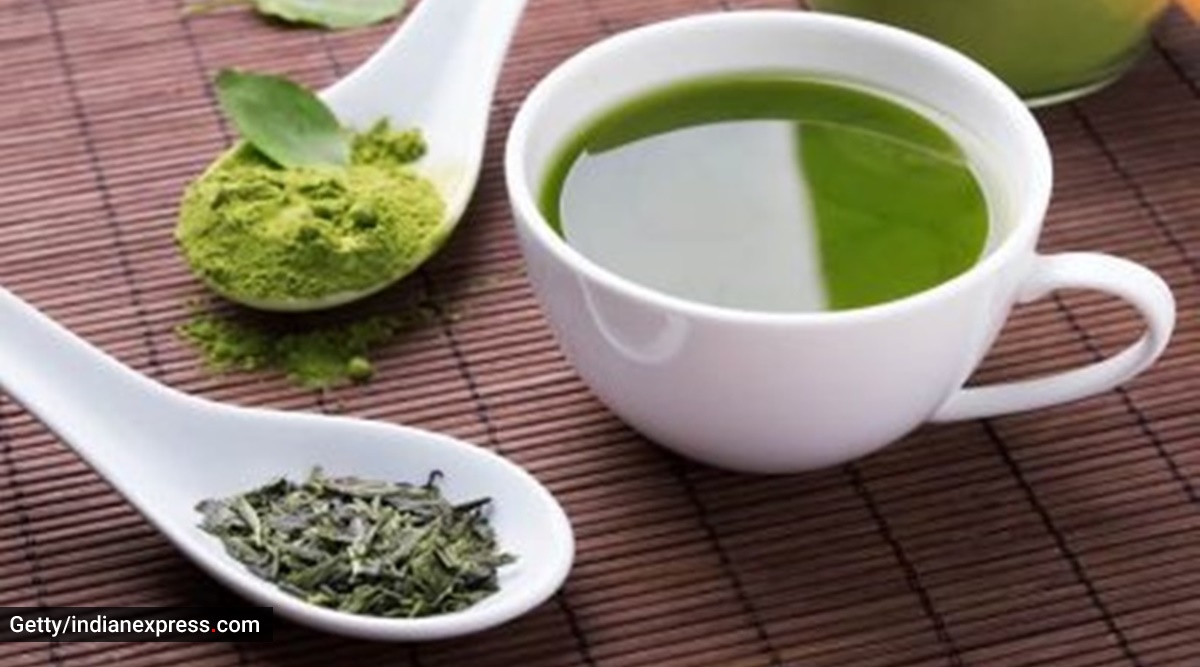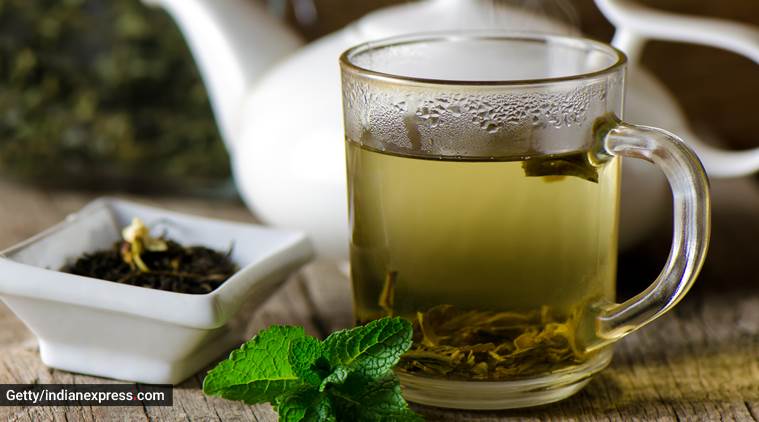According to Dr Parmeet Kaur, green tea helps increase good cholesterol levels; and its high amount of antioxidants improve brain function and reduce risk of cancer, type-2 diabetes and cardiovascular diseases

Green tea, which is one of the least processed teas made from unoxidised leaves, often finds mention in talks about weight loss. While many restrict it to one or two cups a day, some others even consume up to five cups. But what is the ideal quantity that one should consume for weight loss, among other benefits?
Today, on green tea researcher and chemist Michiyo Tsujimura‘s 133rd birth anniversary which also finds mention on Google Doodle, we have experts decoding the beverage for you.
According to a National Center for Biotechnology Information (NCBI) literature review, to produce green tea, freshly harvested leaves are immediately steamed to prevent fermentation, yielding a dry, stable product. This steaming process destroys the enzymes responsible for breaking down the colour pigments in the leaves and allows the tea to maintain its green colour during the subsequent rolling and drying processes, it reads.
Origin of green tea
Dolly Kumar, founder and director, Gaia, mentioned in an earlier interaction with indianexpress.com that “the tea got popularised in Japan around 1190 when a Zen priest visiting and studying in China’s Buddhist monasteries and temples returned to Japan with tea plant seeds and bushes”. “He popularised the tea as a meditation ritual within his own community of Buddhist monks, eventually spreading the custom of tea drinking throughout the rest of Japan,” she said.
Benefits of green tea
Green tea consumption has also been linked to the prevention of many types of cancer, including lung, colon, esophagus, mouth, stomach, small intestine, kidney, pancreas, and mammary glands, as per the 2010 NCBI review.

As an anti-bacterial tea, it is rich in antioxidants, minerals and vitamins, and has innumerable benefits including helping in weight loss, improving body’s metabolism, promoting oral health, exhibiting anti-ageing properties and aiding in reducing the risk of heart diseases too. According to Dr Parmeet Kaur, senior dietician, Narayana Superspeciality Hospital, Gurugram, green tea also helps increase good cholesterol levels; and the high amount of antioxidants improve brain function and reduce risk of cancer, type-2 diabetes, and cardiovascular diseases.
In fact, some studies indicate that people who drink green tea are less likely to develop several types of cancer than those who do not. Cancers that green tea can help protect against include bladder and breast cancer, two common cancers in men and women, respectively, with specific studies showing health benefits for people who drink one cup a day, said
Neha Pathania, Chief- Dietitian, Paras Hospital Gurugram.
Dr Pooja Thacker, Head of Department Dietetic, Bhatia Hospital Mumbai told indianexpress.com that since green tea is a good source of catechin (71mg in 100ml), epigallocatchingallate (126 mg /100ml), and some vitamins compared to wine and berries, it is known to prevent ageing and is also neuroprotective, helping lower chances of Alzheimer’s and dementia, due to the presence of phytochemicals and polyphenols.
They also reduce inflammatory and oxidative stress hence improving skin and reducing metabolic diseases like diabetes, stroke, she added.
When and how much to consume?
“While green tea is loaded with antioxidants and polyphenols, it also contains caffeine, which means consuming it more than thrice a day may leave you with sleepless nights and also drain out essential elements from your system,” cautioned Kumar.
The best possible time to reap the benefits of green tea is in-between meals and not on an empty stomach.
This means you should consume it at least two hours before and two hours after your meal. While drinking green tea in-between your meals will ensure that the catechins (antioxidants) do not react with the caseins present in animal protein or milk, consuming green tea with your meal will minimise the nutrient-intake and inhibit the absorption of iron and minerals from food.
“Drinking 1-2 cups per day is advisable, said Dr Thacker. “It reduces and suppresses hunger – therefore helps in weight loss with calorie restriction,” she said.
Who should be careful about its consumption?
Less likely to be recommended for patients with irritable bowel syndrome and digestive disorder, said Dr Kaur.
How to make a fresh cup of green tea?

Ingredients
Green tea leaves or tea bag
Water
Method
*Boil a cup of hot water.
*Measure one teaspoon of tea leaves and add to it. If using tea bags, then one teabag for one cup of hot water is ideal.
*Let the tea leaves steep in hot water for 2-3 minutes; more than that can result in a bitter taste.
*Now strain the brewed tea into a cup.
*You could add a few drops of honey, lemon or ginger for flavour and enjoy!
? For more lifestyle news, follow us on Instagram | Twitter | Facebook and don’t miss out on the latest updates!
? The above article is for information purposes only and is not intended to be a substitute for professional medical advice. Always seek the guidance of your doctor or other qualified health professional for any questions you may have regarding your health or a medical condition.
Source: Read Full Article



